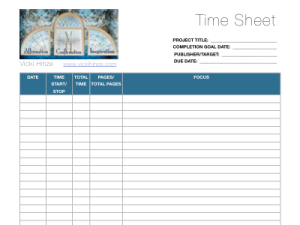HOW LONG DOES IT TAKE TO WRITE A BOOK?
How do you schedule deadlines you know you can make?
How do you have time to write, to do the ancillary work, and have a life?
WARNING: This is a no-edit zone…
Since I received this cluster of questions that all connect to time and apportioning it effectively, I thought I’d address them in this forum.
Q. How long does it take to write a book?
A. It depends.
I’m not being glib, I’m being honest. It does depend on the book. Some come together in a flash. Most come together after tons of elbow grease. And some fight tooth and nail to keep their secrets until either the book or the writer gives in. No two are exactly alike. Familiarity with the topic, enthusiasm for the story, desire to write don’t much matter on this. The stories come as they come, and they do so in their own time and manner.
The longest time I’ve spent on a book: five years–and I’m still not happy with it. Yes, of course, I’ve worked on other projects in between, but if I add all the time I’ve devoted to this book, it’s hovering at five years.
The shortest time I’ve spent on a book: two weeks. I’d written a book related to several other books by various authors. After completing it, I discovered all the red herrings and the villain in my book had been disposed of in earlier books which made events in my book impossible. (Think of the ten percent who didn’t get the word, and you’ll have the upshot of what happened.) The publisher and I were equally mortified about the snafu and they were in a pickle. To not cause challenges on the release dates for all the related books, they needed in a new book in production in two weeks. I read the previous books and wrote a new book. Working closely with my editor, we got it done and made the production deadline.
(These things happen in multi-author projects. When you become aware of the challenge, accept it and focus on the solution. Authors and publishers deal with such things all the time, and working together, more often than not, they successfully work through it and no one outside them ever knows there was a challenge.)
The average time I’ve spent writing a book: just over four months.
The biggest determining factor on time? Life. Health. Family needs and demands. Other commitments.
Life throws everyone curves, so you’re wise to build into your schedule time for them. Health matters arise. I just lost an entire week–first with my angel having the flu, then with my husband and then me. Workshops, traveling to tour or conference. Organizational commitments. It all adds up, and wise authors build in a time pad to prepare for them.
Doing so goes a long way toward scheduling deadlines that you can feel confident of making.
You can look bak over the last six months and see what your life has been like. You can evaluate and see what the upcoming six months are apt to look like. That information is valuable but if you don’t have a clue how long it typically takes you to write a book, you’ve got a lot of nothing to help you schedule deadlines appropriately.
And because you don’t have that information available to you, it’s difficult to determine what ancillary activities and other commitments you can take on without putting yourself in the burnout zone or on overload, maximum output mode. That’s not a good place to be, and your odds of having time for a life and minimizing stress (which is helpful to most in being creative), are pretty much shot.
So knowing how long it takes you to write a book is key and critical. There are a number of ways to determine that, and I’ll share mine. It’s simple and it gives you great insight not only on time spent, but on time spent most effectively.
You might learn that your output is consistently double from 5 to 8 A.M. over what it is at 5 to 8 P.M.
You might learn that you naturally write five hours a day–no one segment of time is more productive than any other–and your output is 5 or 15 pages. Hours after those, you’re less productive. This can enable you to schedule breaks, to set your goals for the day based on time and/or pages.
You might discover that your production drops like a rock in summer or during the holidays or that you need two weeks to loaf during spring fever. You might discover you write best and most late at night in the hours just before dawn, or mid-afternoon.
You might learn that you spend weeks researching rather than the days you thought. That doing characterizations, their goals and motivations and conflicts, take you weeks, not a week. That you need those maps you draw to stay clear, those days of visiting the location of the story, or three entire weeks to build the story world. These ancillary efforts take time and it’s common to under-budget the amount of time you actually spend on them.
You should learn all these things and much more that will assist you in getting a firm grip on where you spend your novel time and that gives you the insight on effectiveness and maximum productivity. Those things give you what you need to schedule appropriately.
So what is this simple method?
A time sheet.
Record the date, the time you start and stop writing, the total time invested in that session, the number of pages produced, the total number of pages you’ve accumulated, and the focus of your efforts.
Track these things through the entire book. Then you’ve got a baseline from which to make your estimates.
Track multiple books, and you’ve got a treasure trove of information on you, the writer, and how you work. You won’t pull dates out of the sky, but from your experience.
A copy of the basic Time Sheet I use follows.
Hope it helps!
Blessings,
Vicki





